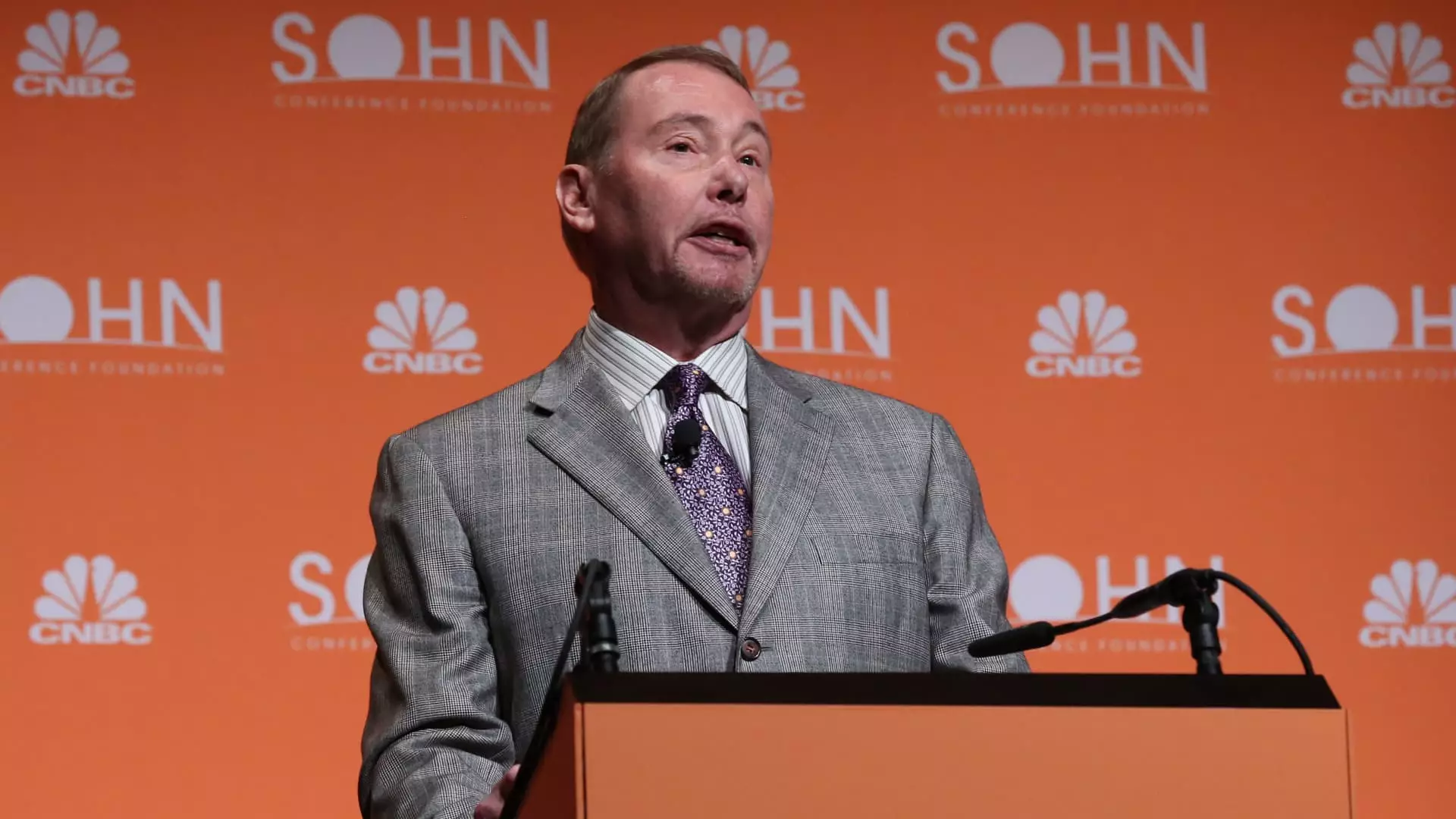As the winds of political change sweep through Washington, notable financial analysts are raising their voices to caution against the implications of potential Republican dominance in the House of Representatives. Jeffrey Gundlach, CEO of DoubleLine Capital, a firm that oversees an impressive $96 billion in assets, recently expressed concerns regarding soaring interest rates spurred by heightened government spending. Gundlach’s comments underscore the intricate relationship between fiscal policy and debt issuance, particularly under the expected leadership of President-elect Donald Trump, who has signaled his intentions to expand governmental outlays.
The ongoing race for control of the House has yet to conclude, but the Republicans’ secured majority in the Senate has already set the stage for significant changes in fiscal policy. With the Federal Reserve recently implementing rate cuts, concerns are mounting over the longer-term ramifications of increased borrowing resulting from governmental spending initiatives. Gundlach emphasizes that if the House tilts towards Republican control, the anticipated surge in debt obligations would lead to rising bond yields, a scenario that could create a ripple effect throughout the economy.
Deficits and Future Borrowing: A Troubling Trend
The backdrop to this political maneuvering is a staggering fiscal landscape. With the conclusion of fiscal year 2024, the United States has recorded a budget deficit exceeding $1.8 trillion. This figure is alarming in itself, but even more worrisome is that over $1.1 trillion of this amount is earmarked solely for financing costs associated with the national debt, which currently stands at $36 trillion. Such staggering financial burdens raise questions regarding the sustainability of existing fiscal policies and the potential for future economic stability.
Gundlach warns that any continuation or expansion of tax cuts, which Trump has proposed, could exacerbate this troubling fiscal reality. These initiatives, while potentially beneficial for stimulating short-term economic growth, could contribute significantly to the national debt, which would, in turn, put pressure on interest rates, especially at the longer end of the yield curve. The prospect of higher interest rates is particularly daunting for financial markets and consumers alike, as borrowing costs would inevitably rise, impacting everything from mortgage rates to corporate financing.
Recession Risks: A Silver Lining Amid Concerns
Despite the foreboding fiscal outlook, Gundlach’s analysis offers a cautious note of optimism. He posits that the policies emerging from the Trump administration may actually reduce the likelihood of an impending recession. By promoting pro-cyclical stimulus measures and maintaining a focus on economic growth, the administration could inadvertently soften recessionary pressures. Gundlach’s assertion highlights a paradox in economic theory; while expansive fiscal strategies often lead to ballooning deficits, they can also stimulate economic activity and mitigate a downturn.
In sum, the interplay between political decisions and economic outcomes remains fraught with complexities. An administration characterized by aggressive spending and tax cuts may deliver short-term boosts to the economy, but the long-term consequences could be dire if preceded by a widening deficit and rising interest rates. As the political landscape evolves, investors and consumers alike must remain vigilant, ready to adapt to the changing tides of fiscal policy and the potential repercussions for the economic environment.

